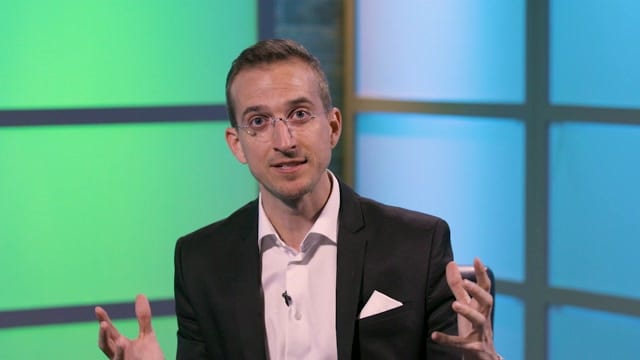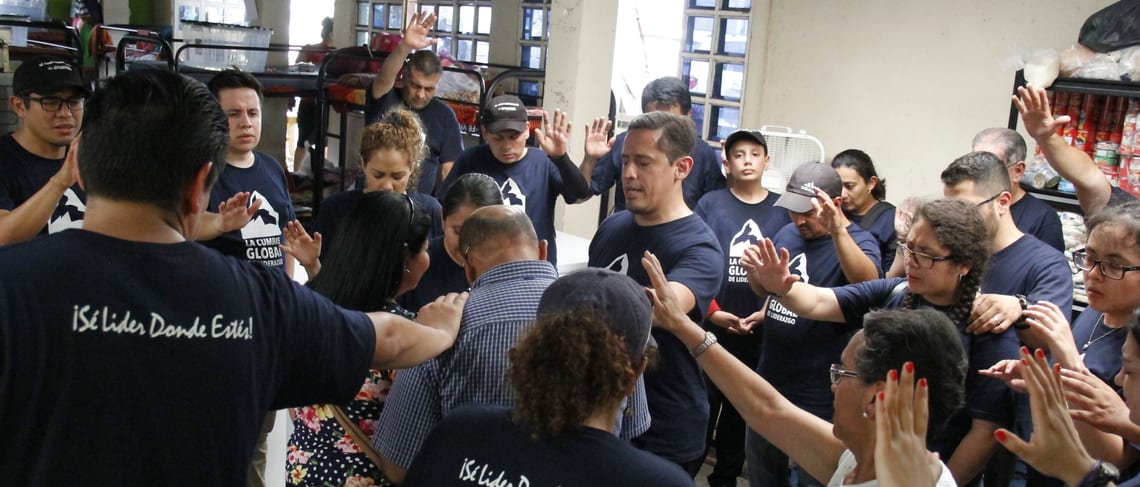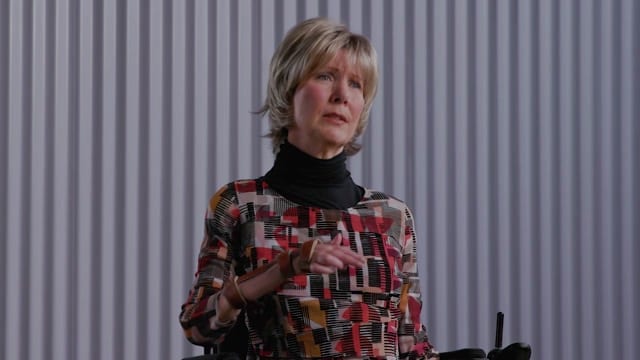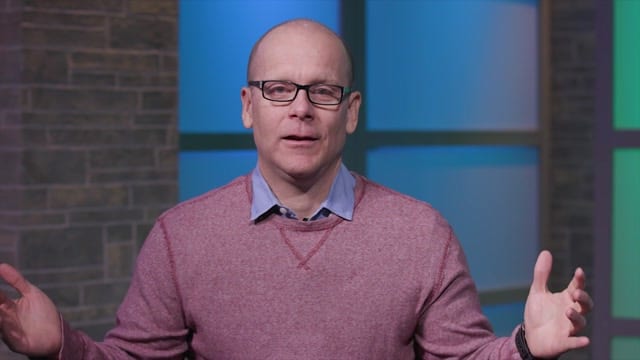
 Valentina lived alone in a small shack on a remote mountainside in rural Ukraine. A byproduct of her culture, she experienced a long hard road of poverty, abuse and war. She had lost her hope. To drown her pain, she had become a lifelong alcoholic. At her advanced age, she was discarded by society, even by her own children. Her saving grace was a neighbor couple who had made it a habit to walk to her shack to check in on her periodically, even though she was mean, angry and rarely, if ever, grateful.
Valentina lived alone in a small shack on a remote mountainside in rural Ukraine. A byproduct of her culture, she experienced a long hard road of poverty, abuse and war. She had lost her hope. To drown her pain, she had become a lifelong alcoholic. At her advanced age, she was discarded by society, even by her own children. Her saving grace was a neighbor couple who had made it a habit to walk to her shack to check in on her periodically, even though she was mean, angry and rarely, if ever, grateful.
But one year, the winter on the mountainside was particularly harsh. The snow was waist deep, and the cold was unbearable. Her children came for their monthly visit to take her $50 pension check from her and get her drunk. Then they left her to suffer the winter alone, with no resources to care for herself.
When her neighbors returned after being gone a few days, they noticed there was not smoke coming from her fireplace chimney, so they went to check on her. Inside she was freezing and unresponsive. Immediately, they tried to warm her up—dripping hot tea and milk to her lips, placing warm water bottles against her body. They did whatever they could think of to bring her body back to life. She finally awoke the next day.
 The neighbor’s daughter, Veronika, a Marcel Fund compassion worker and nurse in the city, happened to be visiting that day. Suspecting pneumonia or worse, she knew Valentina needed to go to the hospital immediately.
The neighbor’s daughter, Veronika, a Marcel Fund compassion worker and nurse in the city, happened to be visiting that day. Suspecting pneumonia or worse, she knew Valentina needed to go to the hospital immediately.
They came down the mountain and made the trek to the hospital in the city, where they discovered not only did Valentina have pneumonia, she was also suffering from tuberculosis and cancer. By this time, the alcohol was leaving her system, evoking agitation and anger in her already miserable state.
But Veronika visited her every day. And a mean Valentina began to heal.
When she was able to leave the hospital, a Christian family at a local church in the city offered to take her in. They fed her, prayed with her and loved her. By the time spring came a few months later, the snow had melted, and her heart had begun to warm.
 Valentina began asking questions about God. At 83, she heard the Gospel for the first time and gave her life to Jesus.
Valentina began asking questions about God. At 83, she heard the Gospel for the first time and gave her life to Jesus.
Today, she is on fire for Jesus. She is a completely transformed woman. Not only was she able to get help with her alcoholism, she was reconciled with her children as well. Today, she lives in the city with the family that took her in, is a part of a church and lives and serves in a community she loves, and that loves her.
Today, Valentina has hope.
A vision for the elderly in Ukraine
 Valentina’s story is just one among thousands who have been impacted by the Marcel Fund Ministry in Ukraine. With a vision to serve one of the most marginalized, under-valued groups of people in the country, the Marcel Fund hopes to reach more than 12 million elderly with hope, care and the love of Jesus.
Valentina’s story is just one among thousands who have been impacted by the Marcel Fund Ministry in Ukraine. With a vision to serve one of the most marginalized, under-valued groups of people in the country, the Marcel Fund hopes to reach more than 12 million elderly with hope, care and the love of Jesus.
Though the elderly represent nearly a third of the country’s population, they are largely forgotten by society. Ninety percent are women, as most of the men passed in the war. Most are home or bed bound, or even worse, they’re in living in 20 x 20 rooms in elderly homes with 15-20 beds, and no hot water or heat. Their small $50 pension checks go to the elderly home, and even though they are fed, it is not good food, and no medicine is provided. They suffer bed sores to the point of bones coming through the skin, and essentially they are left to die.
But there is hope.

Debbie Sutton, president of Marcel Fund
Their heartbreaking reality of life is one of the reasons Debbie Sutton, president of the Marcel Fund Ministry, and her team care so deeply. When Debbie looks into the eyes of someone like Valentina, she doesn’t just see an angry, mean old lady, she sees someone who needs love. She sees someone who can transform the country.
“These people have lived through wars, when everything was taken from them,” says Debbie. “Just touching them, saying I love you and telling them about Jesus…it’s shocking to them because most of them have never experienced this kind of care before.”
Initiating this ministry through the local church in Ukraine, Debbie believes transformation is possible for and through the elderly. Now Marcel Fund compassion workers are seeing change happen.
Transformation is possible.
 Doing unpopular work and going against the grain of the norm is hard. So are callings. But through The Global Leadership Summit, God is equipping the called for hard work. For Debbie and her team, the GLS is not just a conference; it is a life source of information, encouragement, team building and leadership growth.
Doing unpopular work and going against the grain of the norm is hard. So are callings. But through The Global Leadership Summit, God is equipping the called for hard work. For Debbie and her team, the GLS is not just a conference; it is a life source of information, encouragement, team building and leadership growth.
Each year, the Marcel Fund team leaves the Summit filled up and prepared for another year of serving the elderly—the babushkas of their society. And as a result, thousands of elderly have already experienced hope through their service through the local church.
“I’m hopeful more than ever before for the way the Gospel is beginning to change Ukraine,” says Debbie. “Churches are realizing that if you win the heart of babushkas, you have access to the hearts of her children. Churches are changing their attitudes toward the elderly. They are starting to see the elderly have so much to offer!
 “In our churches, babushkas serve as greeters, share testimonies, tell stories, become buddies with orphans and pray with young women struggling with whether or not to keep their babies. They have wisdom and understanding, and are some of our best witnesses in the country; they’re convinced of the power of the Gospel. They’re our best prayer warriors. And I truly believe revival will come to Ukraine because of the elderly. We need to value them. We need to listen.”
“In our churches, babushkas serve as greeters, share testimonies, tell stories, become buddies with orphans and pray with young women struggling with whether or not to keep their babies. They have wisdom and understanding, and are some of our best witnesses in the country; they’re convinced of the power of the Gospel. They’re our best prayer warriors. And I truly believe revival will come to Ukraine because of the elderly. We need to value them. We need to listen.”
Why the Summit is so important to ministries like Marcel Fund
“The Summit is so important to us,” says Debbie. “I’m really thankful for the GLS. When I go, I’m often tired, overwhelmed, even empty. We always pray in the weeks before, asking God to give each one of us on our team something from Him, something personal, something specific. Then we go in anticipation. Many times God speaks to us indirectly—through the stories we hear, through a speaker or even through the loving way we are served at the location where we attend. It feeds us. It is so encouraging for to my team to hear this great content in their own tongue, in their own country. The work we do is really hard, even on a good day. I always come away from the Summit knowing that God uses ordinary people in extraordinary ways!
“Anyone can change diapers, but this is providing medicine for the soul. I can’t imagine anything better to remind my team of the importance of what they’re doing.
“The GLS helps us keep our focus, clarify our ministry in each region, build strong partnerships and relationships and remain hopeful and patient in the process. Doors are wide open to us. We have seen God do some beautiful things because our team is not afraid to initiate ideas. The GLS has directly impacted my leadership and my entire team. I am a better leader because I attend the Summit.”

 Jossy Chacko’s session changed my life and ministry. I decided then and there that I would pursue the vision God had given me for community outreach.
Jossy Chacko’s session changed my life and ministry. I decided then and there that I would pursue the vision God had given me for community outreach.





























Recent Comments